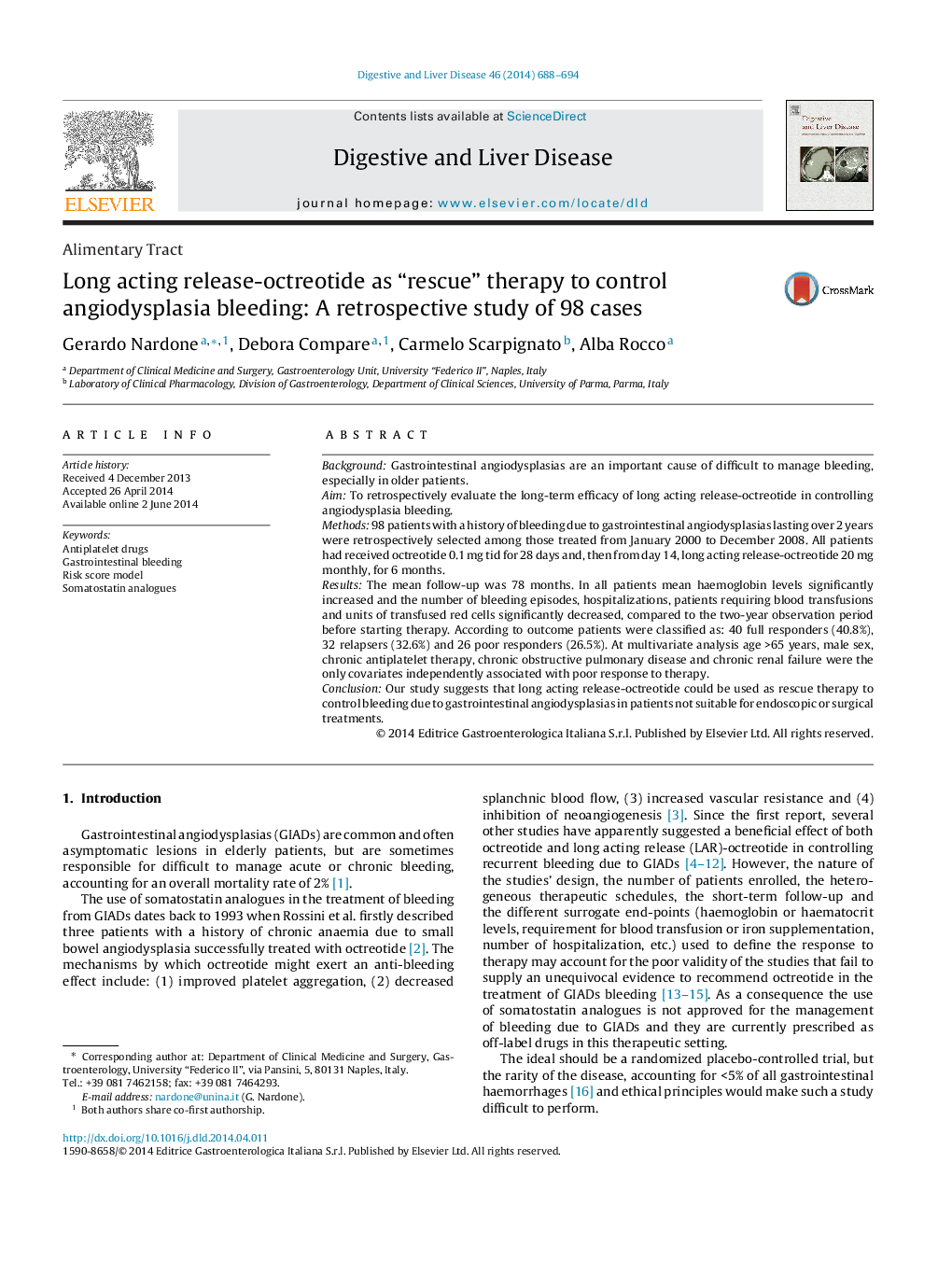| Article ID | Journal | Published Year | Pages | File Type |
|---|---|---|---|---|
| 3262006 | Digestive and Liver Disease | 2014 | 7 Pages |
BackgroundGastrointestinal angiodysplasias are an important cause of difficult to manage bleeding, especially in older patients.AimTo retrospectively evaluate the long-term efficacy of long acting release-octreotide in controlling angiodysplasia bleeding.Methods98 patients with a history of bleeding due to gastrointestinal angiodysplasias lasting over 2 years were retrospectively selected among those treated from January 2000 to December 2008. All patients had received octreotide 0.1 mg tid for 28 days and, then from day 14, long acting release-octreotide 20 mg monthly, for 6 months.ResultsThe mean follow-up was 78 months. In all patients mean haemoglobin levels significantly increased and the number of bleeding episodes, hospitalizations, patients requiring blood transfusions and units of transfused red cells significantly decreased, compared to the two-year observation period before starting therapy. According to outcome patients were classified as: 40 full responders (40.8%), 32 relapsers (32.6%) and 26 poor responders (26.5%). At multivariate analysis age >65 years, male sex, chronic antiplatelet therapy, chronic obstructive pulmonary disease and chronic renal failure were the only covariates independently associated with poor response to therapy.ConclusionOur study suggests that long acting release-octreotide could be used as rescue therapy to control bleeding due to gastrointestinal angiodysplasias in patients not suitable for endoscopic or surgical treatments.
